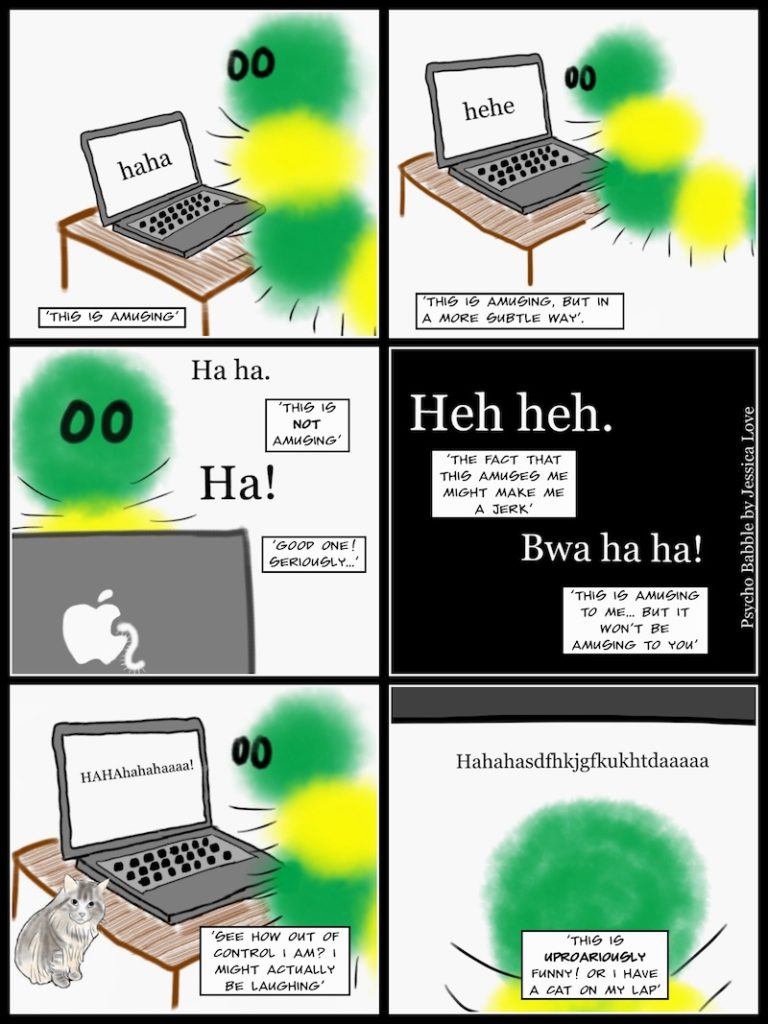A Reader’s Guide to Ha Ha (A Webcomic)
On the many strange spellings of a very strange word

Even as onomatopoeias go, ha ha is an oddity. It represents laughter, considered by most researchers to be humankind’s universal way of expressing amusement. But unlike many onomatopoeias, the word’s usefulness (at least in its non-ironic sense) is generally restricted to writing. After all, why say ha ha to communicate our beguilement when we can actually laugh?
Yet ha ha in a written form has been with us a long time—since long before English was recognizable as English. Throughout its history, spelling variations have been common. The Oxford English Dictionary offers, for instance, Hach, hach, hach, Ha ha he, and ha! ha! ha! But until recently, spellings were always highly variable. Now that spelling is largely standardized, deviating from an accepted spelling can be an effective rhetorical strategy. Sometimes deviations become so widely used (at least among particular communities) that they take on different meanings of their own.

